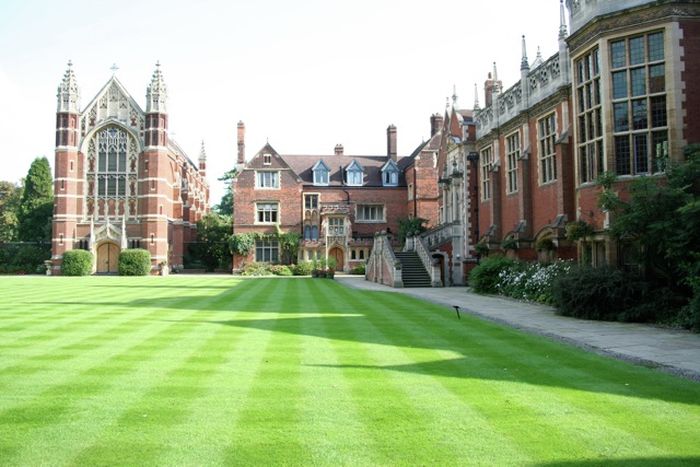Vice-Chancellor holds first free speech dialogue
The pilot event saw the VC hold a discussion on assisted dying

Cambridge’s new Vice-Chancellor held the first of her free speech ‘dialogues’ on Wednesday, which canvassed views of academics and invitees on assisted dying.
This was the pilot run of the VC’s new scheme, which aims to create environments where people can “actually learn” from an “honest and open” exchange of views, Dr Prentice told Varsity.
In her first annual address, Dr Prentice said that the dialogues will “provide a public forum for the exchange of conflicting and possibly controversial views”.
Three speakers engaged in conversation, with each offering a different perspective on legalising euthanasia in the UK.
The Master of Selwyn College, Roger Mosey, chaired the discussion, posing questions to each of the speakers. The Chair of Dignity in Dying, Dr Jonathan Romain, spoke with Dr Amy Proffitt, talking on behalf of Dying Well and Dr Zoë Fritz, a Wellcome Fellow in Society and Ethics at Cambridge.
The Vice-Chancellor opened the dialogue by affirming that nothing in the law is “taboo.” Dr Prentice stressed that this new initiative is by no means associated with the Cambridge Union, nor does it seek to replicate its format of debate.
Prentice instead wished to allow speakers to talk with each other and acknowledge the sensitivity and nuance of the subject proposed.
In response to Romain’s points of having the right to autonomy in death, Dr Amy Proffitt concluded that “autonomy is relational.” She proposed that assisted dying was not a solution to suffering, rather gross improvement in palliative care should be distributed in the UK to reduce pain and see that patients have the “privilege” to live until the end naturally.
Proffitt drew upon fears that public discussion of assisted dying was similar to public discussion of Brexit, in that popular opinion may have been influenced by misinformation. Currently, opinion polls have shown that there is public support for the idea.
In referencing the ‘Brexit bus’ which urged voters to ‘fund our NHS’ instead of allegedly sending £350 million a week to the EU, Proffitt concluded that we should be wary about using public opinion as a guiding principle in making decisions over this highly sensitive issue.
A Government bill on assisted dying is currently passing through the House of Lords, and has entered its second reading. The bill would “enable adults who are terminally ill to be provided at their request with specified assistance to end their own life.”
Speaking at this pilot run of Dr Prentice’s new free speech scheme, the VC said she is eager to continue to locate a “common ground” between people who may seem “far apart”.
 Comment / Cambridge students are too opinionated 21 April 2025
Comment / Cambridge students are too opinionated 21 April 2025 Comment / Does the AI revolution render coursework obsolete?23 April 2025
Comment / Does the AI revolution render coursework obsolete?23 April 2025 Comment / Cambridge’s tourism risks commodifying students18 April 2025
Comment / Cambridge’s tourism risks commodifying students18 April 2025 News / News in brief: campaigning and drinking20 April 2025
News / News in brief: campaigning and drinking20 April 2025 Interviews / Meet the Chaplain who’s working to make Cambridge a university of sanctuary for refugees20 April 2025
Interviews / Meet the Chaplain who’s working to make Cambridge a university of sanctuary for refugees20 April 2025






